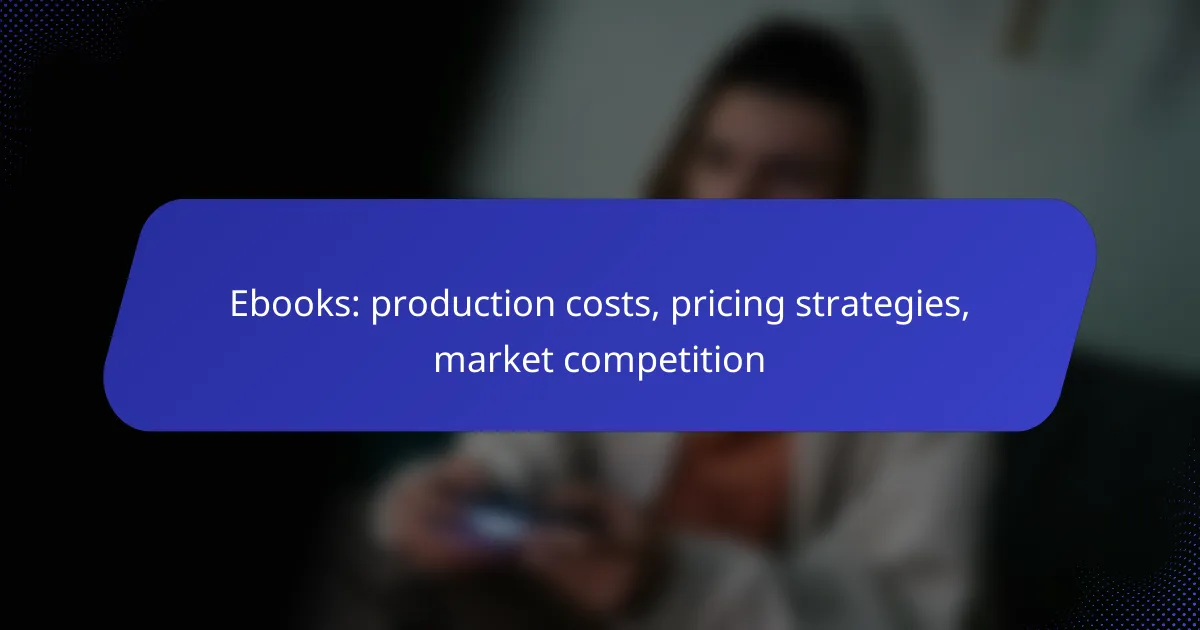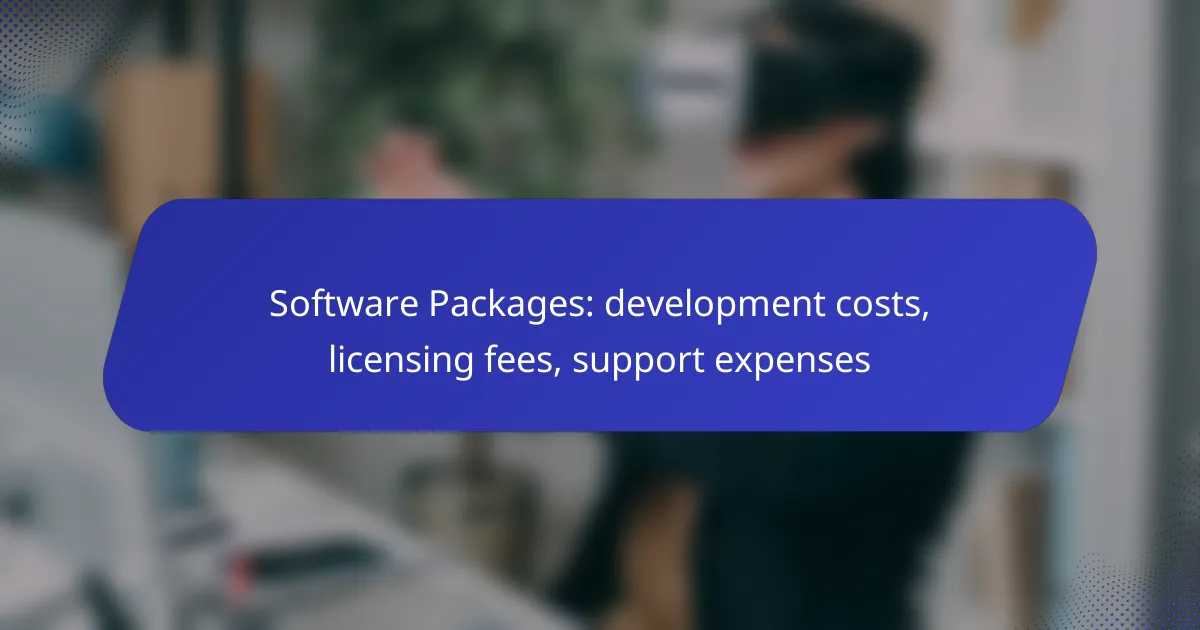The production costs of ebooks in the UK can vary widely, influenced by factors such as editing, design, and marketing, typically ranging from a few hundred to several thousand pounds. Effective pricing strategies must take into account these costs, market trends, and the perceived value of the ebook to optimize sales and profitability. Additionally, competitive pricing techniques like discounting, bundling, and subscription models can help publishers attract buyers while maximizing revenue.
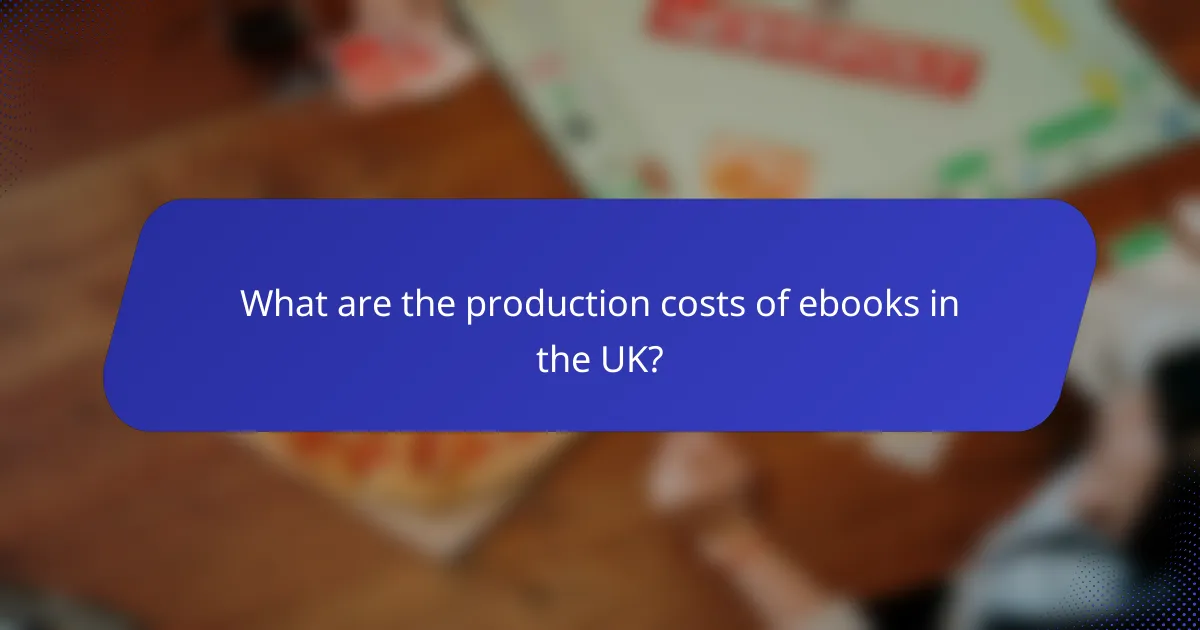
What are the production costs of ebooks in the UK?
The production costs of ebooks in the UK can vary significantly based on factors such as editing, design, and marketing. Generally, these costs can range from a few hundred to several thousand pounds, depending on the complexity and quality of the ebook.
Editing and design expenses
Editing and design are crucial components of ebook production, often accounting for a substantial portion of the overall costs. Professional editing services can range from £200 to £1,500, depending on the manuscript’s length and the editor’s expertise. Design costs for a compelling cover and interior layout can add another £100 to £800.
Investing in high-quality editing and design can significantly enhance the ebook’s marketability and reader satisfaction. It’s advisable to obtain quotes from multiple professionals to ensure competitive pricing.
Distribution and marketing costs
Distribution and marketing costs are essential for reaching your target audience effectively. Depending on the chosen platforms, distribution fees can range from 30% to 50% of the ebook’s sale price. Additionally, marketing expenses, including social media promotions and email campaigns, can vary widely, often starting at around £100 for basic efforts.
To maximize visibility, consider allocating a budget for both distribution and marketing early in the production process. This can help ensure that your ebook reaches potential readers effectively.
Platform fees for ebook sales
When selling ebooks, platform fees play a significant role in determining overall profitability. Major platforms like Amazon Kindle Direct Publishing typically charge a royalty of 30% to 65%, depending on the pricing strategy chosen. Other platforms may have different fee structures, so it’s essential to review their terms carefully.
Choosing the right platform can affect your earnings significantly. Consider factors such as audience reach, ease of use, and promotional tools offered when selecting where to sell your ebook.
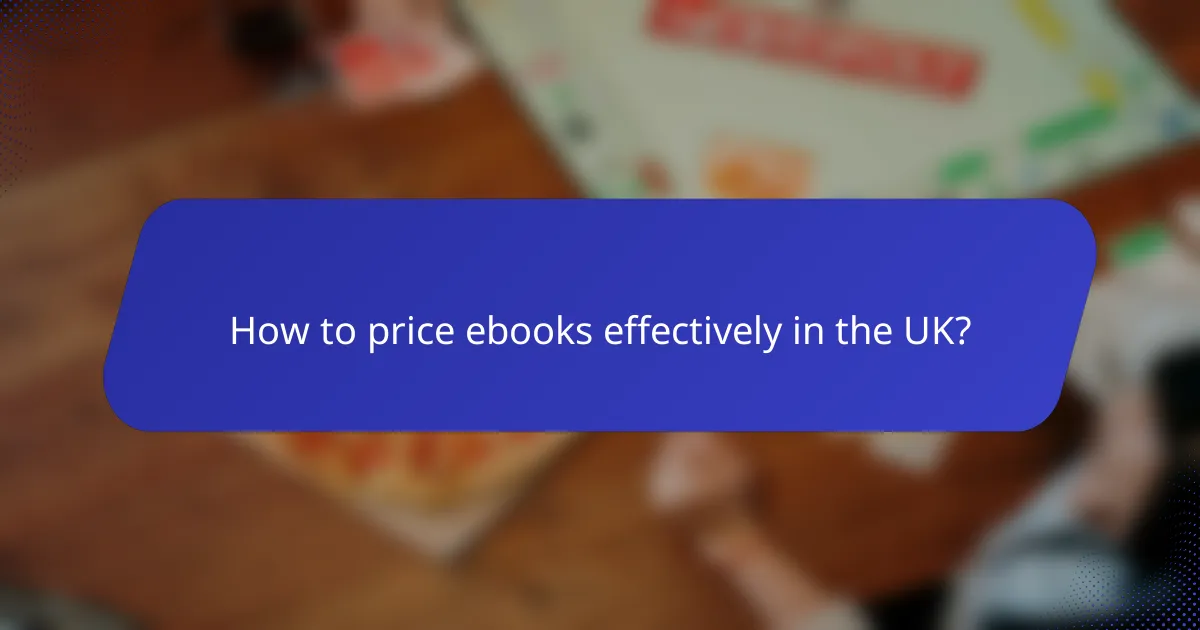
How to price ebooks effectively in the UK?
To price ebooks effectively in the UK, consider production costs, market trends, and perceived value. A well-structured pricing strategy can enhance sales while ensuring profitability.
Cost-plus pricing strategy
The cost-plus pricing strategy involves calculating the total production costs of the ebook and adding a markup to determine the selling price. This approach ensures that all costs are covered and a profit margin is achieved.
For example, if the production cost of an ebook is £2, adding a 50% markup would set the price at £3. This method is straightforward but may not always align with market demand or perceived value.
Market-based pricing strategy
Market-based pricing focuses on setting prices based on competitors’ pricing and market conditions. This strategy requires thorough research to understand what similar ebooks are priced at and how they perform in the market.
For instance, if competing ebooks in the same genre are priced between £4 and £8, positioning your ebook within this range can enhance its competitiveness. Regularly monitoring market trends is crucial for adjusting prices effectively.
Value-based pricing strategy
Value-based pricing sets the price according to the perceived value of the ebook to the consumer rather than solely on production costs. This approach requires understanding the target audience and what they are willing to pay for the content.
For example, if your ebook offers unique insights or expert knowledge, you might price it higher than average, potentially between £10 and £15, if the value is clearly communicated to the audience. This strategy can maximize profit but requires strong marketing efforts to convey the ebook’s value.
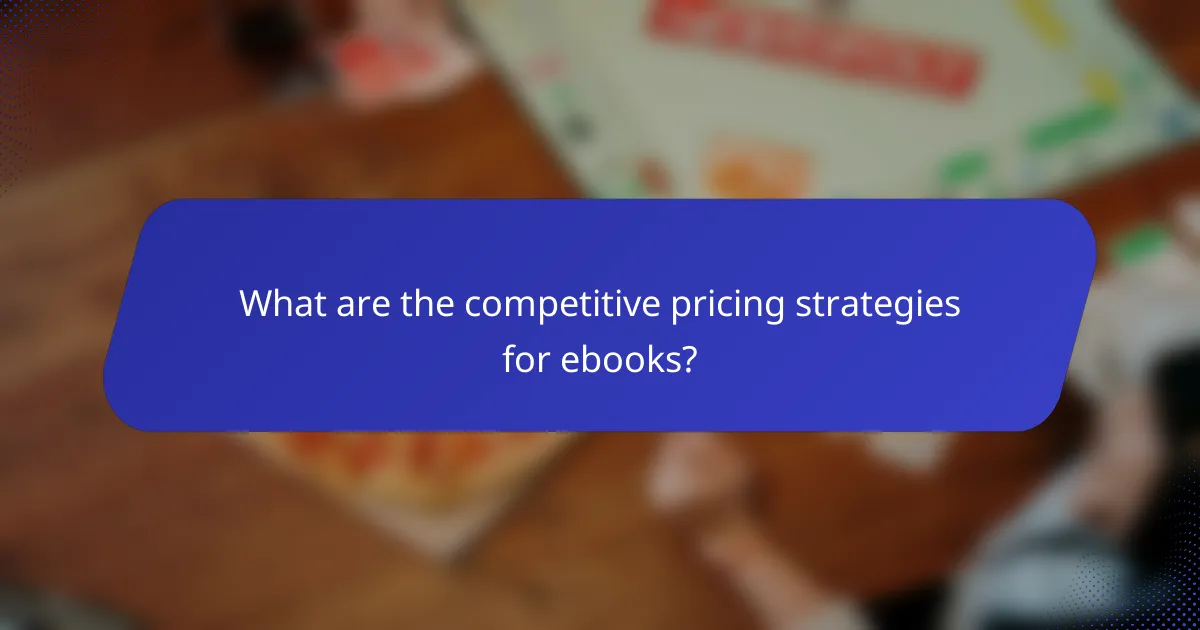
What are the competitive pricing strategies for ebooks?
Competitive pricing strategies for ebooks involve various techniques to attract buyers while maximizing revenue. These strategies include discounting, bundling with other digital products, and subscription models, each offering unique advantages and considerations for publishers.
Discounting strategies
Discounting strategies can effectively stimulate sales and increase market share for ebooks. Common approaches include temporary price reductions, seasonal sales, or offering promotional discounts to first-time buyers. For instance, a publisher might reduce the price of a new release by 20% for the first month to encourage initial purchases.
However, it’s crucial to avoid frequent discounting, as it may devalue the product in consumers’ eyes. Setting clear discount periods and communicating them effectively can help maintain perceived value while driving sales.
Bundling with other digital products
Bundling ebooks with other digital products, such as audiobooks or online courses, can enhance perceived value and encourage purchases. This strategy allows consumers to access multiple related products at a reduced price compared to buying each item separately. For example, a publisher might offer a bundle of an ebook and its audiobook version for a combined price that is lower than purchasing each individually.
When implementing bundling, ensure that the products are complementary and appeal to the same target audience. This approach not only boosts sales but also enhances customer satisfaction by providing a comprehensive learning experience.
Subscription models
Subscription models offer readers access to a library of ebooks for a recurring fee, making it an attractive option for avid readers. Services like Kindle Unlimited allow subscribers to read a wide range of titles for a monthly fee, which can lead to increased exposure for authors and publishers.
When considering a subscription model, evaluate the potential trade-offs, such as revenue sharing with the platform and the need for a steady stream of new content to keep subscribers engaged. Balancing quality and quantity is essential to retain subscribers and ensure long-term success.
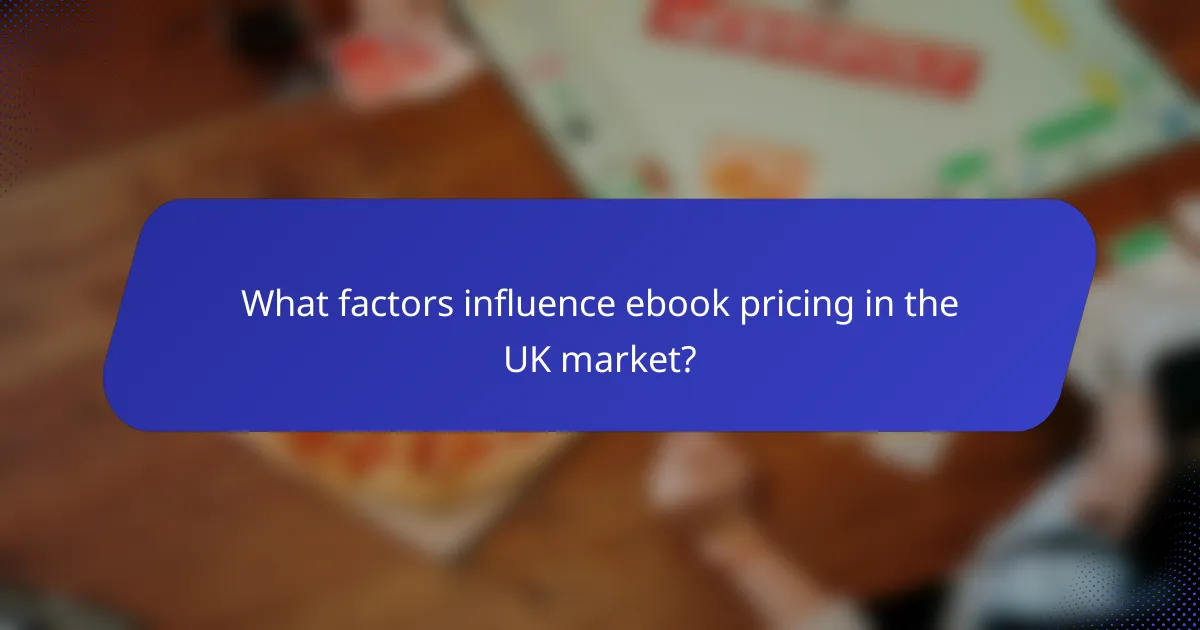
What factors influence ebook pricing in the UK market?
Several factors influence ebook pricing in the UK market, including target audience demographics, genre and market demand, and author reputation. Understanding these elements can help authors and publishers set competitive prices that attract readers while ensuring profitability.
Target audience demographics
Demographics such as age, income, and reading habits significantly affect ebook pricing. For instance, younger audiences may prefer lower-priced ebooks, while older readers might be willing to pay more for established authors or specialized content. Identifying the primary demographic can guide pricing strategies to maximize sales.
Additionally, consider the purchasing power of your target audience. If your readers are primarily students or budget-conscious individuals, pricing in the lower range of £1 to £5 may be more appealing. Conversely, professionals or niche market readers might accept higher prices, potentially ranging from £5 to £15.
Genre and market demand
The genre of an ebook plays a crucial role in determining its price. Popular genres like romance or thrillers often see higher sales volumes, allowing for competitive pricing strategies. In contrast, niche genres may require higher prices to cover production costs due to lower demand.
Market demand can fluctuate based on trends, seasons, or events. For example, pricing may be adjusted during holiday seasons or in response to popular book releases. Monitoring these trends can help authors and publishers adapt their pricing effectively.
Author reputation and brand
Author reputation significantly influences ebook pricing. Established authors with a loyal following can command higher prices, often ranging from £7 to £20, due to their brand value. New authors, however, may need to price their ebooks more competitively to attract initial readers.
Building a brand involves consistent quality and engagement with readers. Authors should consider offering promotional pricing or free samples to build their reputation and encourage reviews, which can lead to higher sales and the ability to increase prices over time.
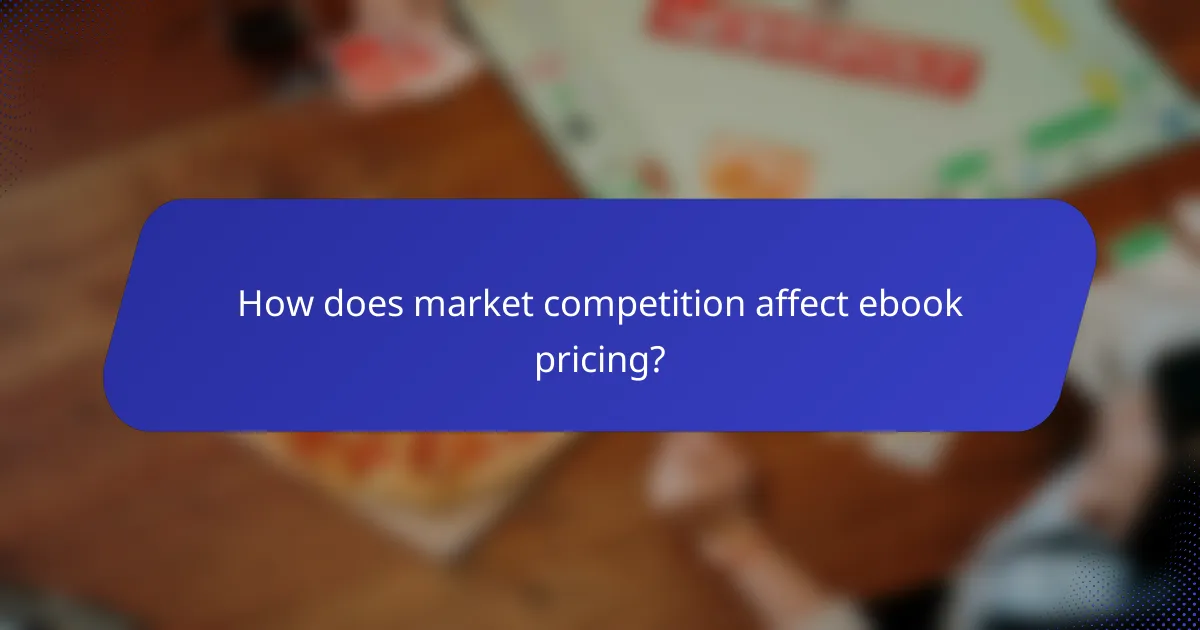
How does market competition affect ebook pricing?
Market competition significantly influences ebook pricing by driving publishers to adjust their prices based on competitor offerings and consumer demand. As more ebooks become available, pricing strategies must adapt to remain attractive to potential buyers.
Analysis of competitor pricing
Understanding competitor pricing is crucial for ebook publishers. By analyzing similar titles in the same genre, publishers can identify price ranges that are appealing to readers. For instance, if most ebooks in a category are priced between $2.99 and $9.99, setting a price outside this range may deter potential buyers.
Tools like price tracking software can help publishers monitor competitor pricing trends over time, allowing for informed adjustments to their own pricing strategies. Regularly reviewing competitors’ promotions and discounts can also provide insights into effective pricing tactics.
Market saturation effects
As the ebook market becomes saturated with titles, the competition intensifies, leading to potential price wars. In a crowded market, publishers may need to lower prices to attract readers, which can impact overall profit margins. It’s essential for publishers to find a balance between competitive pricing and maintaining profitability.
Additionally, market saturation can lead to a focus on quality over quantity. Publishers may choose to invest in better marketing or unique content to differentiate their ebooks rather than solely competing on price.
Emerging trends in ebook consumption
Recent trends in ebook consumption, such as the rise of subscription services, are reshaping pricing strategies. Services like Kindle Unlimited or Scribd allow readers to access a wide range of titles for a monthly fee, which can influence individual ebook pricing. Publishers may need to consider how their pricing fits within these subscription models.
Moreover, the increasing popularity of audiobooks and multimedia content is prompting publishers to explore bundling options. Offering ebooks alongside audiobooks at a slight discount can attract more customers and enhance perceived value.
